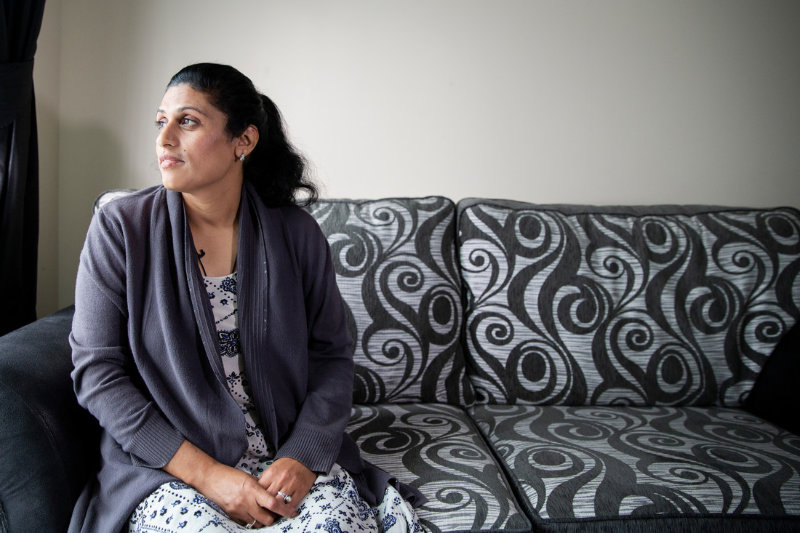Writing about domestic abuse
(Read the tone-of-voice guide in our brand guidelines for more how to write about homelessness and people who are homeless.)
Domestic abuse is the third most common reason for someone to become homeless.
Whenever we write about domestic abuse, and in whatever context, it is important that we all use the language and tone that is currently considered best practice.

Shelter’s current work on domestic abuse
At the moment, Shelter has:
a domestic abuse service in Sheffield
a Women’s Voices group, part of Inspiring Change Manchester and made up of women who have experienced domestic abuse
published a report called Stuck in Limbo, co-produced by the Research team and the Women’s Voices group, which makes recommendations for helping survivors with their housing issues
begun a Community of Practice, bringing together expertise from across Shelter’s service, to influence women-centred services
been supporting the charity Crisis’s call to give domestic abuse survivors priority need in housing
a Reaching Communities (Big Lottery funded) peer research project looking at women’s centred services in Birmingham, Bristol, and Sheffield
membership in the Domestic Abuse Housing Alliance, represented at meetings by teams from across Policy and Services
Domestic abuse and domestic violence
The terms domestic abuse and domestic violence are often used interchangeably, but there is a difference between them.
Domestic abuse is a broad term. And, although it includes physical violence, it is not limited to this. It describes the wide range of abuse that can occur in relationships, such as mental, verbal, financial, sexual, and emotional.
Domestic violence is narrower in its meaning and is more limited to one-off acts of physical violence.
Domestic abuse is now, therefore, the preferred term, and has largely replaced domestic violence.
We should all always use the term 'domestic abuse' - and not 'domestic violence' - in our communications.
What is domestic abuse?
Domestic abuse can include, but is not limited to, the following:
physical abuse
emotional, psychological, and mental abuse
sexual abuse
coercive control (a pattern of intimidation, degradation, isolation, and control with the use, or threat, of physical or sexual violence)
financial abuse
verbal abuse
religious and spiritual abuse
honour-based violence
forced marriage
female genital mutilation (FGM)
stalking and harassment
online and digital abuse
Domestic abuse can happen between adults who are, or have been, intimate partners, or between family members, regardless of gender or sexuality.
Typically, domestic abuse forms a pattern of controlling and abusive behaviour, and can escalate over a period of time. Survivors may also experience several different types of abuse from the same perpetrator.
What to say when writing about domestic abuse
In our communications, we should:
talk about ‘survivors’ and ‘perpetrators'. It is far more empowering, and gives people more agency, when we use the word ‘survivors’ instead of ‘victims’. The use of ‘perpetrators’ also helps make it clear where the responsibility for the crime lies
keep to the facts, as we could be subject to libel accusations if we misrepresent the situation in any way
place responsibility firmly on the perpetrator
use empowering language. For example, talk about ‘supporting survivors to rebuild their lives’, rather than ‘rescuing people’
What to avoid when writing about domestic abuse
In our communications, we shouldn’t:
use the word ‘victim’, except in a criminal justice situation or if someone has been killed
use sensationalising language. For example, calling the abuse a ‘horror’ or talking about ‘fleeing domestic abuse’
talk about invasive or graphic details which compromise the dignity of the survivor
use insensitive or trivialising language. For example, ‘crime of passion’
use stock images that reinforce the idea that domestic abuse is only ever a one-off act of violence
Further information
If you’d like to read more about domestic abuse, the following charities have good websites:
Level Up (they have specific guidance about reporting domestic abuse deaths in the media)
Related
Learn how we write about homelessness and people who are homeless in our tone of voice guidelines.
All content guides
Learn the lingo
For a range of definitions of digital terms and roles, visit our digital glossary
Contact us about the digital framework
Have a question or comment? Found a bug? Or maybe you’d like to contribute to the framework? Use our contact form to get in touch.
